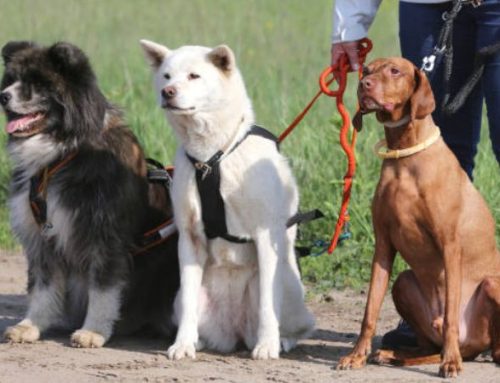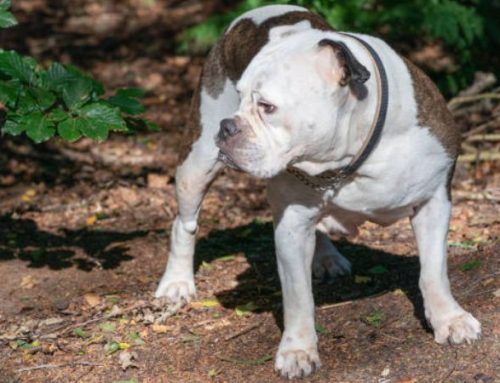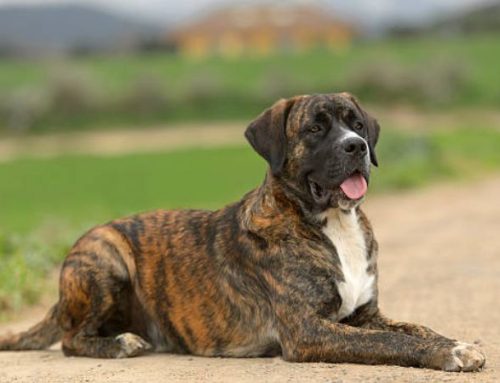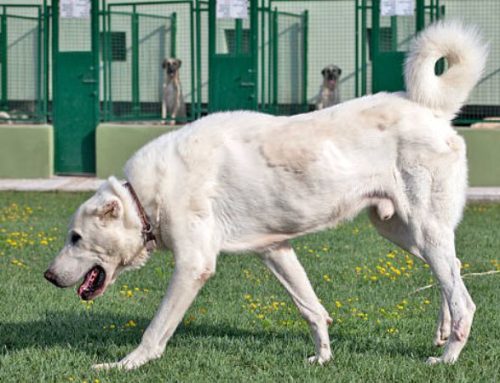Meet the Affenpinscher a pint-sized powerhouse wrapped in wiry fur and packed with fearless attitude. Don’t let his toy-sized frame fool you; this “monkey-faced” dog carries the heart of a lion and the wit of a comedian. From his bold stance to his expressive eyes, the Affenpinscher charms everyone he meets while keeping a vigilant eye on his surroundings.
In this guide from Nexus Pets, we’ll explore everything you need to know about this rare and spirited breed from size and lifespan to what it really costs to bring one of these little legends home.
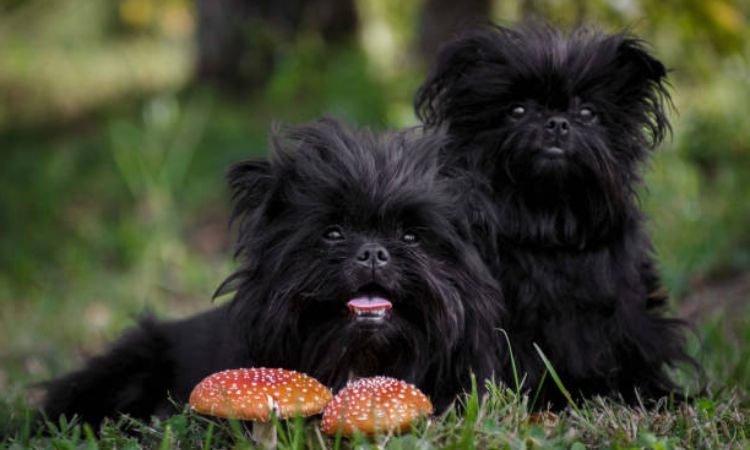
Introduction: Meet the “Monkey Dog”
With its expressive, almost human-like face and mischievous charm, the Affenpinscher has earned the endearing nickname “Monkey Dog.” Originating in Germany as far back as the 1600s, this bold little breed was once prized for keeping kitchens and stables free of rodents — but today, it’s better known as a spirited and loyal companion. The name Affenpinscher literally translates to “monkey-like terrier,” a nod to both its appearance and its playful, curious nature.
Compact yet confident, the Affenpinscher stands about 10 to 12 inches tall and weighs between 7 and 13 pounds. Beneath its shaggy, wiry coat lies a sturdy frame and a big personality. Its signature “monkey-like” expression — framed by bushy eyebrows, a beard, and a tousled mane — gives it a unique look that dog lovers instantly recognize. Despite its small stature, this breed is full of courage, humor, and affection, making it an ideal match for those who appreciate both attitude and charm in one furry package.
Key Statistics: Size, Lifespan, and Cost
Affenpinscher Size and Appearance (Physical Profile)
The Affenpinscher is a small but sturdy toy breed, often described as “monkey-faced” due to its expressive features.
- Height: Adult Affenpinschers typically stand 9 to 11.5 inches (23–29 cm) at the shoulder, with females sometimes slightly shorter or more compact than males.
- Weight: Healthy adult Affens generally weigh 7 to 10 pounds (3–5 kg), reflecting their compact, muscular build.
- Coat Type and Colors: Affens have a rough, wiry coat that’s shaggy over the head and shoulders, forming a distinctive mane, with shorter hair on the back and hindquarters. Colors vary, including black, gray, silver, red, black and tan, and beige. Their coat is low-shedding and considered hypoallergenic, though weekly brushing is recommended to prevent tangles and maintain texture.
Affenpinscher Lifespan and Longevity
- Expected Lifespan: Affenpinschers typically live 12 to 15 years, making them a long-term companion for families and individuals alike.
- Factors Affecting Longevity: Genetics, regular veterinary care, a balanced diet, and proper exercise all play important roles in the breed’s health. Responsible breeders screen for common issues such as hip dysplasia, luxating patella, heart concerns, and eye problems to help ensure a longer, healthier life.
Affenpinscher Price: Initial and Ongoing Costs
Initial Price (Puppy Cost):
- Puppies from reputable breeders usually range from $1,500 to $3,500, depending on factors such as pedigree, breeder reputation, and whether the puppy is pet-quality or show-quality.
- Rescue organizations may charge lower adoption fees, often between $300 and $700, though availability is limited because the breed is considered rare.
Ongoing Ownership Costs:
- Veterinary Care: Annual check-ups, vaccinations, and preventive care can cost around $500–$1,000 per year, depending on location and specific health needs.
- Grooming: Hand-stripping or professional grooming every 3–4 months may cost $50–$100 per session; at-home maintenance requires brushes, combs, and occasional trimming.
- Food and Supplies: A quality small-breed diet, along with essentials like leash, toys, bedding, and treats, typically adds $300–$600 per year.
Owning an Affenpinscher is a rewarding experience, but potential owners should be prepared for both the upfront investment and the ongoing commitment to care, grooming, and health.
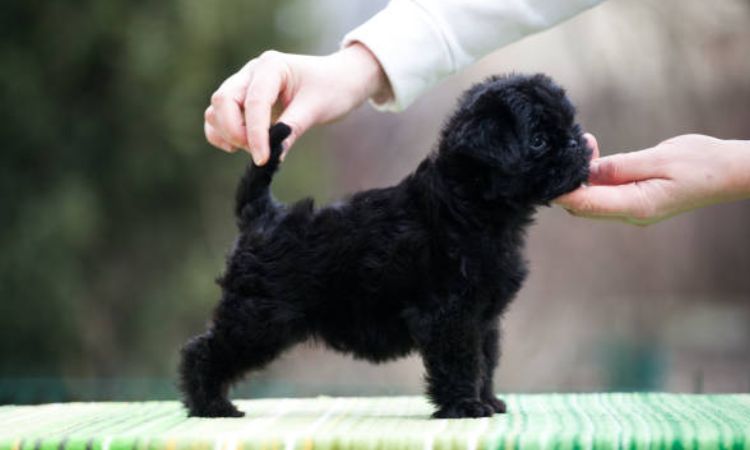
Temperament and Training (Affenpinscher Personality)
Personality Traits
Despite their compact size, Affenpinschers are bold, intelligent, and sometimes stubborn. They are affectionate with their families and enjoy interactive play, but their independence can make them seem strong-willed. This breed is often described as a “big dog in a little body” because they carry themselves with confidence, approach new situations with curiosity, and aren’t easily intimidated.
Affenpinschers are vocal alert dogs, quick to announce anything unusual in their environment. While their watchdog instincts are impressive, early socialization is essential to prevent excessive barking or anxious behavior in unfamiliar situations.
Compatibility with People and Pets:
- Children: Generally suitable for older children who understand gentle handling. Small size makes them vulnerable to rough play, so supervision is necessary.
- Other Dogs and Pets: Can coexist with other dogs if properly socialized, but their terrier-like hunting instincts may make them less suitable for households with small rodents.
Training an Affenpinscher
Training an Affenpinscher requires patience, consistency, and positive reinforcement. Their intelligence makes them quick learners, but their independent streak can lead to selective listening. Short, fun training sessions with treats, praise, or play work best.
Key Training Tips:
- Early Socialization: Introduce your puppy to a variety of people, pets, and environments to build confidence and reduce fearfulness.
- Positive Reinforcement: Use treats, verbal praise, and play rather than punishment. Affenpinschers respond poorly to harsh methods.
- Consistency: Set clear boundaries and routines to reinforce good behavior.
- Mental Stimulation: Puzzle toys, scent games, and interactive training prevent boredom, which can lead to mischief.
- Obedience and Activities: They excel at basic obedience, agility, and interactive games, which allow them to channel energy in productive ways.
Common Behavioral Considerations
- Independent Nature: Affens may sometimes prefer to do things their own way; patience is key.
- Alert and Vocal: Regular training can help control barking without suppressing their natural watchdog instincts.
- Mischievousness: Their playful, curious nature means they may get into trouble if left unsupervised or under-stimulated.
With proper guidance, an Affenpinscher can be a loyal, affectionate, and endlessly entertaining companion. Their mix of intelligence, courage, and humor makes them well-suited for owners who are patient, attentive, and ready to embrace the personality of this tiny, fearless “monkey dog.”
Health and Care Essentials
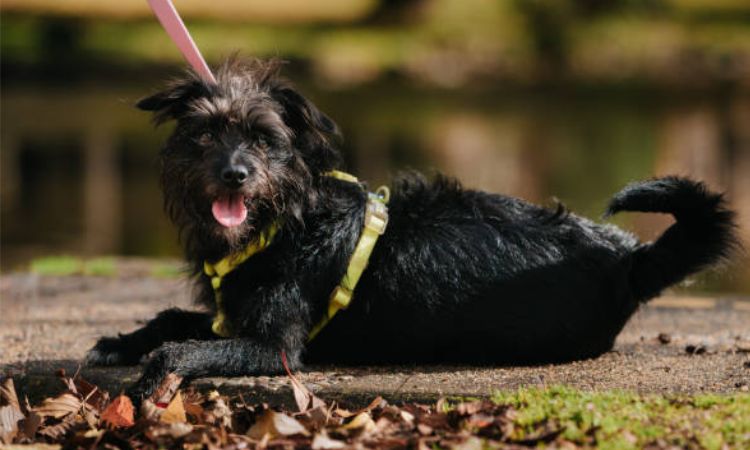
Grooming Requirements
Coat Care
Affenpinschers have a dense, wiry coat that’s longer around the head, neck, chest, stomach, and legs. To keep it healthy and tangle-free:
- Brushing: At least twice weekly using a small slicker brush followed by a metal comb to remove mats and debris.
- Professional Grooming: Recommended every 4–6 weeks for stripping or clipping to maintain the coat’s wiry texture and neat appearance.
- Bathing: As needed, typically every few months, using gentle dog shampoo.
Dental Care
Small breeds like the Affenpinscher are prone to dental issues. Routine care is crucial:
- Brushing: Ideally several times per week with dog-safe toothpaste.
- Dental Checks: Regular veterinary dental exams help prevent tartar buildup, gum disease, and tooth loss.
Common Affenpinscher Health Issues
While generally healthy, Affenpinschers may be predisposed to certain breed-specific conditions:
- Patellar Luxation: Kneecap dislocation causing pain or mobility issues. Mild cases may need monitoring, severe cases may require surgery.
- Hip Dysplasia: Though rare in small breeds, it can cause arthritis and discomfort. Maintaining a healthy weight and providing controlled exercise is key.
- Brachycephalic Airway Syndrome: Due to their short snout, Affens may experience noisy breathing, snoring, or overheating. Exercise in hot weather should be limited.
- Heart Conditions: Mitral valve disease can occur in older dogs, requiring ongoing monitoring and medication.
- Eye Problems: Cataracts and tear staining may develop with age; regular eye checks are recommended.
Preventative Care
Regular veterinary visits are essential for early detection and management of these conditions. A balanced diet, appropriate exercise, and routine wellness exams can significantly extend a healthy, active life. Vaccinations, parasite prevention, and monitoring for weight changes are also critical to long-term well-being.
An Affenpinscher means welcoming a small dog with a big personality into your life. From their spirited, fearless nature to their wiry coat and distinctive “monkey-like” expression, these dogs combine charm, loyalty, and humor in every interaction. Understanding their size, lifespan, and costs—both initial and ongoing helps ensure you can provide the care, attention, and training they need. With proper grooming, routine veterinary care, and consistent socialization, Affenpinschers thrive as devoted companions, offering years of affection and entertainment to the right owner.


